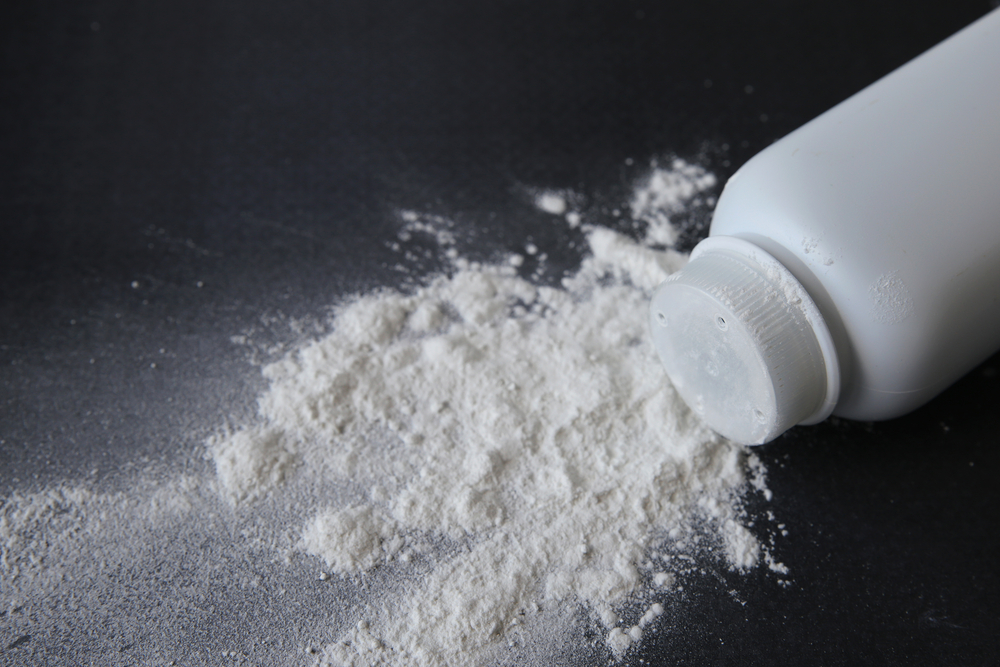Despite a clear association established by numerous studies that show talc (a/k/a “Talcum Powder”) can cause ovarian cancer in women when used on the genitals, Johnson & Johnson continues to fail to warn women of the risks of using Johnson Baby Powder and Shower-to-Shower Body Powder.
Johnson & Johnson first developed Baby Powder in 1893, promoting it as a means of absorbing unwanted moisture and odors in babies and women. Over the next century, Johnson’s Baby Powder grew into a top selling product and is now commonly found in every home.
The Link Between Talc and Ovarian Cancer
A long history of independent research has established a strong link between ovarian cancer and talc, yet Johnson & Johnson continues to sell the product as safe without warning women of the risks.
- A 1961 study found that carbon particles similar to talc can translocate from the exterior of women’s genitals to women’s ovaries.
- Another study done in 1968 determined that 19 percent of talc was fibrous content similar to asbestos that could cause unsuspecting health problems.
- In 1971, researchers found talc particles deeply embedded in ovarian and cervical tumors of women with cancer, and determined that women without cancer had less chance of having such particles in their bodies.
- Due to the fibrous content present in talc, researchers recommended in 1976 that regulatory standards be created for talc use, and the possible health risks be evaluated.
- In 1982, Harvard researchers found that genital talc use increased the risk of ovarian cancer in women by 92 percent. The Harvard study was followed by 21 different studies worldwide, almost all finding a connection between talc and ovarian cancer, but Johnson & Johnson and other talc powder manufacturers called the findings inconclusive.
A recent study funded by the National Cancer Institute and the National Institutes of Health found a 36-41 percent increase in ovarian cancer related to the use of talc. The study advised women to immediately stop using the product.
Several studies have reported a positive association between perineal use of talcum powder among adult women and ovarian cancer risk…
Conclusion:
Our results suggest that perineal talcum powder use increases the risk of endometrial cancer, particularly among postmenopausal women.
For these reasons and many others, the Talcum Powder lawyers at Childers, Schlueter & Smith continue to review and investigate Talc cases in patients diagnosed with Ovarian Cancer. If you have questions about a potential claim or just need more information, please contact our office right now to see how we can help.
Other Talcum Powder News
Understanding how to bring a talcum powder case starts with a free consultation—get the answers you need.
Determining eligibility for a talcum powder lawsuit involves several factors, and guidance from our experienced attorneys can make all the difference.
Johnson & Johnson announced it will end global sales of its talcum-based baby powder, shifting to a cornstarch formula amid tens of thousands of claims linking talc to ovarian cancer and mesothelioma.
A new lawsuit filed in U.S. District Court in Connecticut alleges that more than five decades of Johnson & Johnson talcum powder use resulted in an ovarian cancer diagnosis.
The first of over 300 lawsuits linking talcum powder to ovarian cancer has begun in California. The cases allege Johnson & Johnson knew about talc’s cancer risks for decades but failed to warn consumers.
At the end of the fifth Missouri talcum powder trial against Johnson & Johnson, jurors awarded the plaintiff over $110 million for claims that the company’s talc product caused ovarian cancer.




